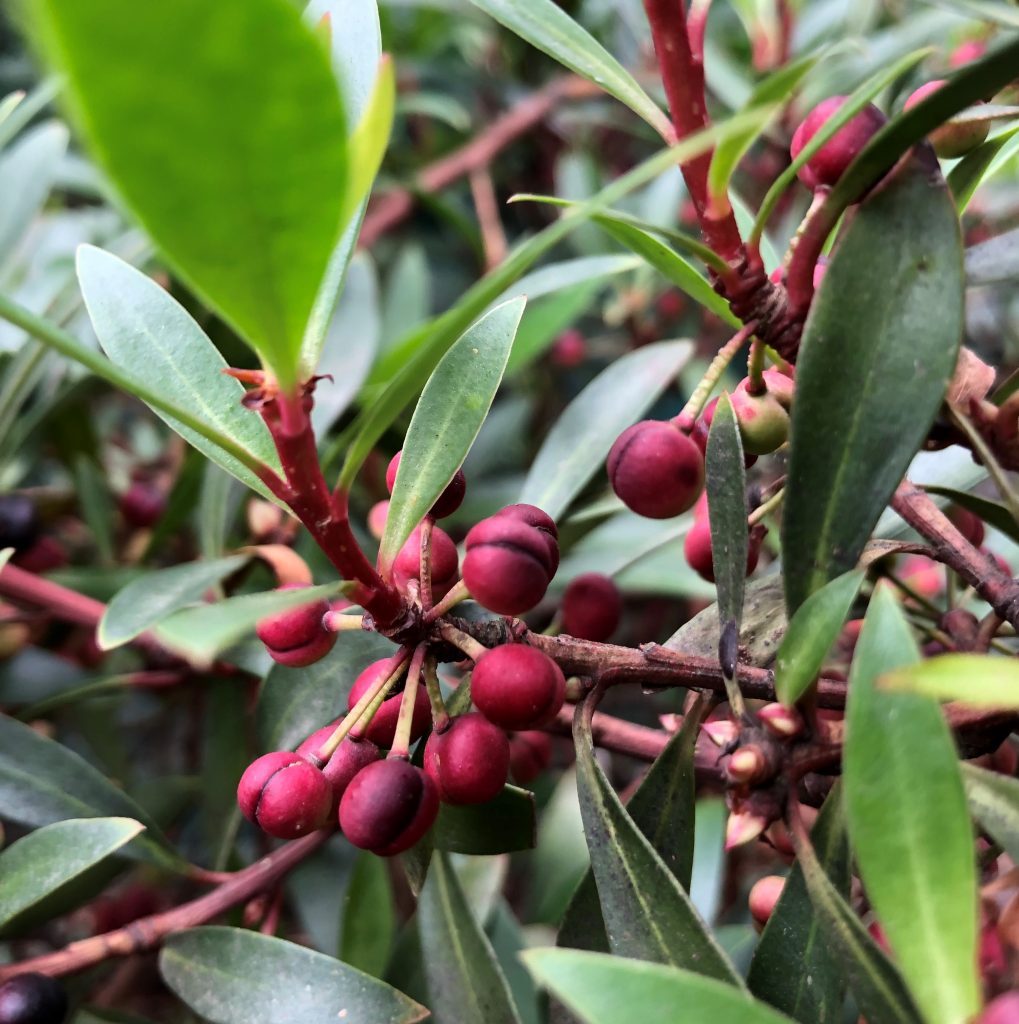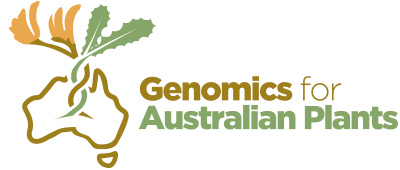Tasmannia lanceolata (Mountain pepper, Tasmanian pepperberry)
Aim: Reference genomes (Phase 3 project)
Project initiation: Aug 2021

Project collaborators:
- Mathew Lewsey | La Trobe University
- Alexandre Fournier-Level | University of Melbourne
- Uyen Hong | La Trobe University
- Changyu Joe Yi | La Trobe University
- Jennifer Mortimer | University of Adelaide
- Berit Ebert | University of Melbourne
Project description:
Tasmannia lanceolata (mountain pepper) has long been used by indigenous communities as a condiment and herbal medicine, and now attracts attention as a native superfood. This recent interest stems from the high concentration of bioactive compounds found in mountain pepper, particularly polyphenols, as a product of the plant’s unique secondary metabolism. We are currently investigating how gene regulation leads to the enhanced biosynthesis of these superfood compounds by cataloguing gene expression across berry tissues over the course of fruit development.
To enable our analyses we will sequence and assemble a reference genome for the species using technologies that read the very long stretches of plant DNA. We will annotate this reference genome sequence to determine the gene content of the species, then determine the function of individual genes using a combination of gene expression and metabolite profiling data. We then aim to develop a protocol that uses knowledge of gene functions from well-studied crop species in machine-learning to predict the metabolism of Australian native species.
This research is a collaboration between A/Prof MG Lewsey (La Trobe University, https://scholars.latrobe.edu.au/mlewsey), A/Prof J Mortimer (University of Adelaide, https://researchers.adelaide.edu.au/profile/jenny.mortimer), Dr A Fournier-Level and Dr B Ebert (University of Melbourne, https://ebert-lab.science.unimelb.edu.au/, https://adaptive-evolution.biosciences.unimelb.edu.au/people/alexfournier-level.html).
